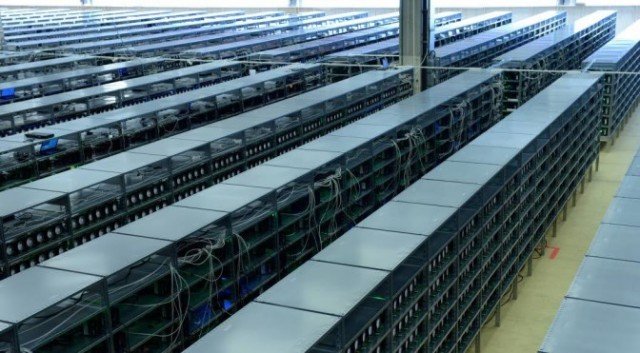
Bitcoin has the appearance of being decentralized and so impossible to change that people cannot even push through an increase in block size. While it may be true that Bitcoin is difficult to change, it is much easier to shut down. The Bitcoin network requires hash power and therefore electricity worth $1M per day. Without this hash power and electricity the network simply stops.
So the question becomes, who controls the electricity? In almost all cases, bitcoin is mined by electricity produced by government regulated and/or nationalized power plants. It just isn't profitable to mine with energy produced by Solar.
The largest mining firms has worked out special arrangements with the chinese government which controls the power company. Without political connections it is not possible to get permission to operate businesses that demand this level of power from the grid.
At any time, the bitcoin network can be halted by a single degree from the chinese government. They can simply cut the power to the mining farms and/or seize the hardware. Economies of scale have pushed mining into fewer and fewer hands and into regions with the cheapest power. This process is bound to continue which means that the vulnerability becomes worse over time. This is an old argument, and not really new.
What Happens when Power is Cut
A sudden drop in hashpower will drop the transaction rate by an equal proportion and extend the period of lower transaction rate. A 50% loss will create 20 minute block intervals and take at least 1 month to correct. A 90% loss will create 2 hour block intervals and take a year to resolve.
The bitcoin network is already saturated, the loss of 50% or 90% of its capacity for 1 month to a year would significantly increase transaction fees. The transaction fees would rise to encourage more hashpower to be added to the network that would have been unprofitable at the prevailing difficulty without the fees.
Illusion of Independent Policy
Bitcoin is controlled by the miners, miners are increasingly centralized in the hands of those who have political connections with various governments. Their profits depend upon maintaining those connections which in turn means they will tend to behave in ways that align with the prevailing government's demands.
So long as Bitcoin continues to rely on Proof of Work, control will ultimately land with the government which subsidizes electricity for bitcoin miners. Any appearance of independence of Bitcoin miners is likely an illusion. Who is really calling the shots on the block size debate? Miners or those who grant permission to draw huge sums of power from the grid?
Proof of Stake / DPOS Solution
Only Delegated Proof of Stake (DPOS) has the ability to remain independent of direct government control due to the much lower resource requirements for operating a node. All that is required is an internet connection and nodes are equally profitable in almost all jurisdictions. If any individual nodes are shutdown the protocol supports the rapid deployment of new nodes to restore full capacity in hours rather than months or years.
In a frontal assault on Bitcoin the government will win unless a hardfork changes the Bitcoin consensus algorithm. Alternatively their influence over hashpower will ultimately grant them the power to fully regulate Bitcoin transactions resulting in no recourse except to fork, but forking is impossible without an effective voting / governance system for Bitcoin.
All of that said, I think Bitcoin will continue to operate and grow in value. This may even be desirable for governments of the world as a means of "trapping" those who attempt to escape the coming global currency collapse. If they will ban cash over-night, start confiscating gold, and implement capital controls of every shape and form then you had better believe they would spend a fraction of the time and energy they do on those programs to cut the power to Bitcoin.
